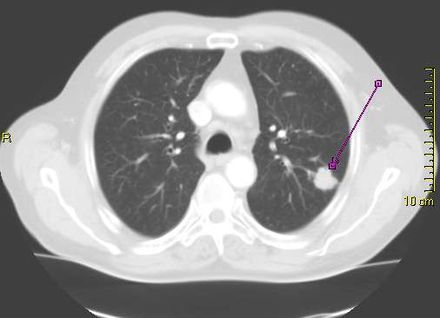MedicalResearch.com Interview with:|
Sharon G. Curhan, MD, ScM|
Director, CHEARS: The Conservation of Hearing Study
Channing Division of Network Medicine
Department of Medicine
Brigham and Women’s Hospital
Harvard Medical School
Boston, MA 02114
MedicalResearch.com: What is the background for this study?
Response: Herpes zoster, commonly known as “shingles,” is a viral infection that often causes a painful rash. Shingles can occur anywhere on the head or body. Shingles is caused by the varicella zoster virus (VZV), the same virus that causes chickenpox. After a person has chickenpox, the virus stays in their body for the rest of their life. Years and even decades later, the virus may reactivate as shingles. Almost all individuals age 50 years and older in the US have been infected with the varicella zoster virus and therefore they are at risk for shingles.
About 1 in 3 people will develop shingles during their lifetime, and since age is a risk factor for shingles, this number may increase as the population ages. The risk is also higher among individuals of any age who are immunocompromised due to disease or treatment. A number of serious complications can occur when a person develops shingles, such as post-herpetic neuralgia (long-lasting pain), but there was limited information on whether there are other adverse long-term health implications of developing shingles.
There is a growing body of evidence that links VZV, the virus that causes shingles, to vascular disease. VZV vasculopathy may cause damage to blood vessels and increase the risk of stroke or coronary heart disease. Although some previous studies showed a higher risk of stroke or heart attack around the time of the shingles infection, it was not known whether this higher risk persisted in the long term. Therefore, the question we aimed to address in this study was to investigate whether shingles is associated with higher long-term risk of stroke or coronary heart disease.
To address this question, we conducted a prospective longitudinal study in 3 large US cohorts of >200,000 women and men, the Nurses’ Health Study (>79,000 women), the Nurses’ Health Study II (almost 94,000 women) and the Health Professionals Follow-Up Study (>31,000 men), without a prior history of stroke or coronary heart disease. We collected information on shingles, stroke and coronary heart disease on biennial questionnaires and confirmed the diagnoses with medical record review. We followed the participants for up to 16 years and evaluated whether those who had developed shingles were at higher risk for stroke or coronary heart disease years after the shingles episode. The outcomes we measured were incident stroke, incident coronary heart disease [defined as having a non-fatal or fatal myocardial infarction (heart attack) or a coronary revascularization procedure (CABG, coronary artery bypass graft or percutaneous transluminal coronary angioplasty)]. We also evaluated a combined outcome of cardiovascular disease, which included either stroke or coronary heart disease, whichever came first.
(more…)
 (more…)
(more…) (more…)
(more…)


















 Response: We started many years ago by studying some natural and synthetic molecules that were able to counteract the early stages of this disease. With a view to early prevention, we wondered if these molecules could be routinely taken with the diet or dietary supplements. So our studies focused on the search for bioactive molecules present in food and edible plants.
Hops are very rich in polyphenolic compounds, and for this reason it is historically used for the production of beer, but also for the preparation of herbal teas and infusions, and its uses in traditional medicine are known. In recent years we have also collected interesting results on Coffee, Sage, Radix Imperatoriae, Cocoa and Cinnamon extracts.
Response: We started many years ago by studying some natural and synthetic molecules that were able to counteract the early stages of this disease. With a view to early prevention, we wondered if these molecules could be routinely taken with the diet or dietary supplements. So our studies focused on the search for bioactive molecules present in food and edible plants.
Hops are very rich in polyphenolic compounds, and for this reason it is historically used for the production of beer, but also for the preparation of herbal teas and infusions, and its uses in traditional medicine are known. In recent years we have also collected interesting results on Coffee, Sage, Radix Imperatoriae, Cocoa and Cinnamon extracts.







 Sean M Hughes MA
Department of Obstetrics and Gynecology
University of Washington
Seattle, WA
MedicalResearch.com: What is the background for this study?
Response: Young women are at elevated risk of getting sexually transmitted infections at the age when they typically start to have sexual intercourse. It’s not known whether this elevated risk is a consequence of behavioral factors (such as choices around use of barrier protection), physiological factors (such as a difference in the immune system) or a combination of both. In this study, we investigated a physiological factor: the immune system in the vagina.
Sean M Hughes MA
Department of Obstetrics and Gynecology
University of Washington
Seattle, WA
MedicalResearch.com: What is the background for this study?
Response: Young women are at elevated risk of getting sexually transmitted infections at the age when they typically start to have sexual intercourse. It’s not known whether this elevated risk is a consequence of behavioral factors (such as choices around use of barrier protection), physiological factors (such as a difference in the immune system) or a combination of both. In this study, we investigated a physiological factor: the immune system in the vagina.




